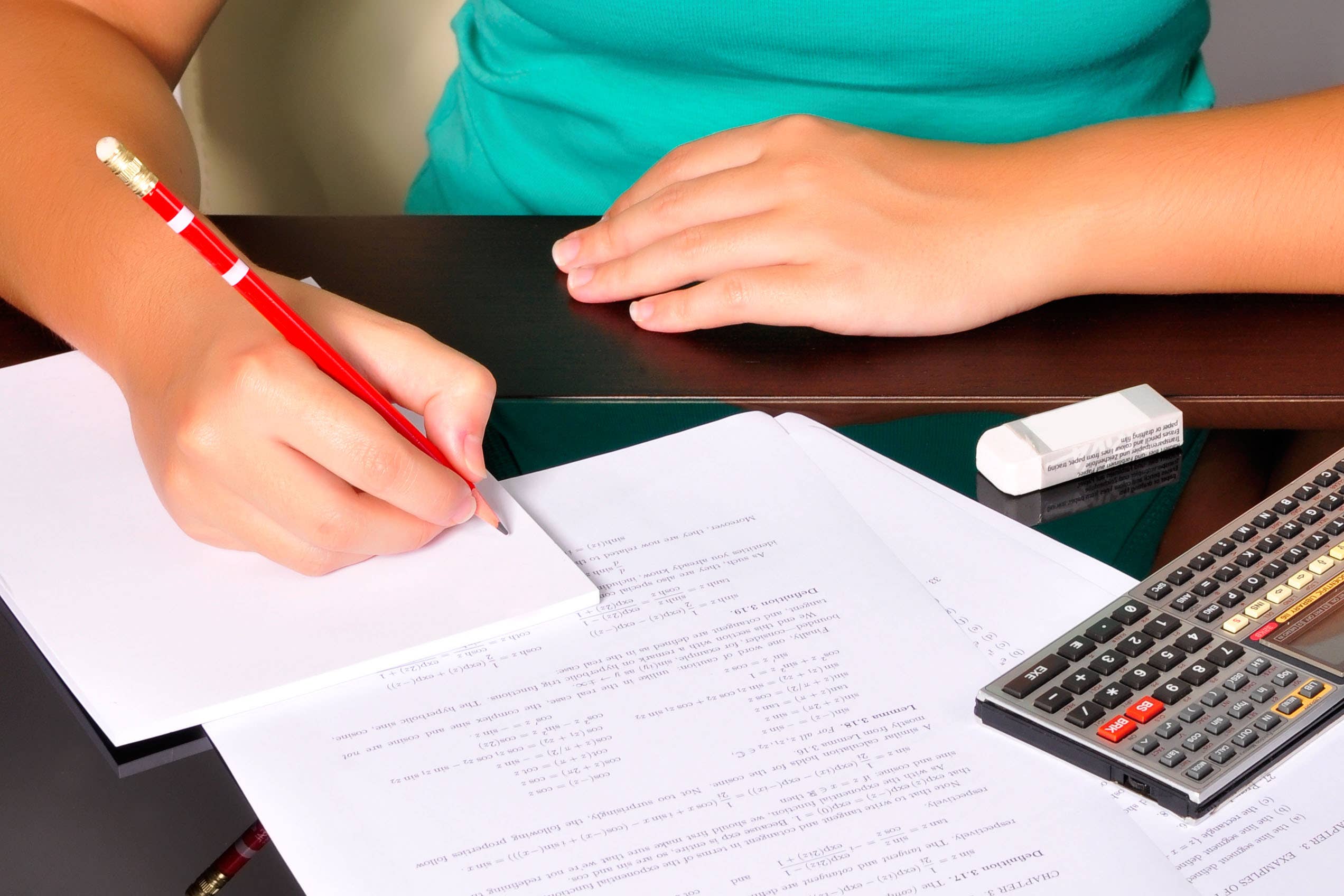Brain stimulation could boost maths ability – study
Scientists used high-frequency random noise stimulation, which sends a mild electrical current to the brain through two electrodes.

Using electrodes to “excite” certain areas of the brain could help people who struggle with maths enjoy the subject more, a study has suggested.
A team spanning the universities of Surrey and Oxford, Loughborough University, and Radboud University in the Netherlands investigated the impact of neurostimulation on learning.
High-frequency random noise stimulation, also known as tRNS, works by sending a mild electrical current to the brain through two electrodes on the scalp.
Previously, we have shown that a person’s ability to learn is associated with neuronal excitation in their brains
Roi Cohen Kadosh, a professor of cognitive neuroscience and head of the School of Psychology at the University of Surrey led the project.
He said: “Learning is key to everything we do in life – from developing new skills, such as driving a car, to learning how to code. Our brains are constantly absorbing and acquiring new knowledge.
“Previously, we have shown that a person’s ability to learn is associated with neuronal excitation in their brains. What we wanted to discover in this case is if our novel stimulation protocol could boost, in other words excite, this activity and improve mathematical skills.”
Some 102 people were recruited for the study – published in the journal Plos Biology – with their mathematical skills assessed beforehand.
They were split into four groups, including a learning group and an ‘overlearning’ group – in which people practised sums “beyond the point of mastery” – while being exposed to high-frequency random electrical noise stimulation.
The other two groups were exposed to a placebo, which researchers said was similar to real stimulation but without significant electrical currents.
Brain activity was measured via an electroencephalogram (EEG) recording at the beginning and end of the stimulation.
This discovery could not only pave the way for a more tailored approach in a person’s learning journey but also shed light on the optimal timing and duration of its application
The team found the ability of those whose brains were less “excited” by maths during the assessment had improved post-stimulation.
There was no change in those who performed well in the initial assessment, nor in those included in the placebo groups.
Prof Cohen Kadosh added: “What we have found is how this promising neurostimulation works and under which conditions the stimulation protocol is most effective.
“This discovery could not only pave the way for a more tailored approach in a person’s learning journey but also shed light on the optimal timing and duration of its application.”
Dr Nienke van Bueren from Radboud University, who led the study under Prof Cohen Kadosh’s supervision, said: “These findings highlight that individuals with lower brain excitability may be more receptive to electrical noise stimulation, leading to enhanced learning outcomes, while those with high brain excitability might not experience the same benefits in their mathematical abilities.”
Bookmark popover
Removed from bookmarks